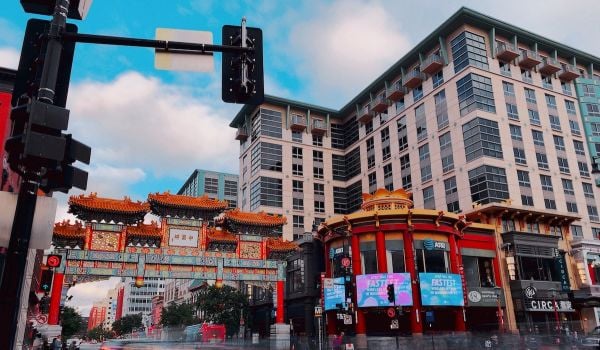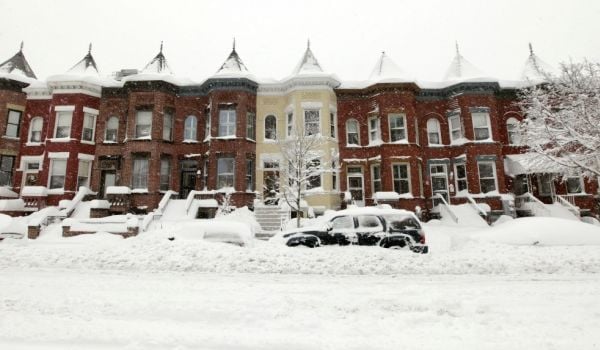During his 1958 campaign for U.S. Senate, John F. Kennedy addressed a gathering of mayors in a speech entitled “Time for an Urban Magna Carta.” Kennedy argued forcefully against the dilution of city votes that had occurred as the country urbanized and redistricting did not keep pace.
Kennedy believed urban issues were overlooked as a result. “Why,” he asked, “should those outside the city be equipped with megaphones and microphones — while urban residents and voters must rely on their naked vocal chords?”
Earlier this month, in a dramatically formatted article, Kevin Baker took up a similar theme, arguing that Republicans, in particular, have turned their backs on cities. (New York Times columnist Clyde Haberman also expressed dismay about the absence of cities from last week’s presidential debate.)
Baker provides a brief, if romantic, history of why Republicans don’t care about cities. But the most interesting part of his piece is its assertion that if Republicans just began talking about cities in a constructive way, they would have a chance of winning in parts of the country they have left for dead:
The potential for change, should Republicans start shouting from the rooftops about cities, is enormous… A Republican Party seeking to actively win cities, not just vilify them or suppress their vote, could open the party up to all sorts of new immigrant voters, like Asian and Latino Americans — and maybe even bring back part of an old voting bloc: black people.
Baker argues that as the suburbs — where about 50 percent of the electorate lives and where votes have swung between Republican and Democratic presidential candidates over the last 20 years — begin to look more like cities, Republicans will have to engage urban issues or face electoral demise.
The problem is that it isn’t entirely clear that talking about urban issues, as opposed to liberalizing in the face of a changing electorate, is a winning electoral strategy for Republicans. It’s not even clear that talking about urban issues is a winning electoral strategy for Democrats.
President Obama had an urban plank during his 2008 campaign and made a rousing campaign speech filled with urbanist language to the Conference of Mayors. But urban issues played no role in the actual back-and-forth between President Obama and Sen. John McCain, whose only comment vaguely touching on cities had to do with crime and sealing our borders. Indeed, in the current election campaign, neither candidate has made any mention of cities. Still, Obama’s 2008 election was in large part a story of America’s urbanizing electorate, as Nate Silver has described.
In 2000 and 2004, an urban-rural divide characterized red and blue states, and in both red and blue states Republican voters were more likely to be rural than urban. However, this same divide did not characterize “purple” or swing states, where “a major reason why these contests are toss-ups is due to the complete absence of a rural-urban voting cleavage.” This suggests that any major push to talk about urban issues by either party could risk alienating a major portion of their all-important swing state electorate. Indeed, while Obama’s 2008 campaign included positions on urban policy, the campaign did not spend very much time (perhaps with the exception of infrastructure) talking about them.
The General Social Survey, which asks whether the country is spending too little, about right or too much to solve the problems of the big cities, provides some additional evidence about how important urban issues are to Americans. About half of respondents think we’re spending too little in cities.
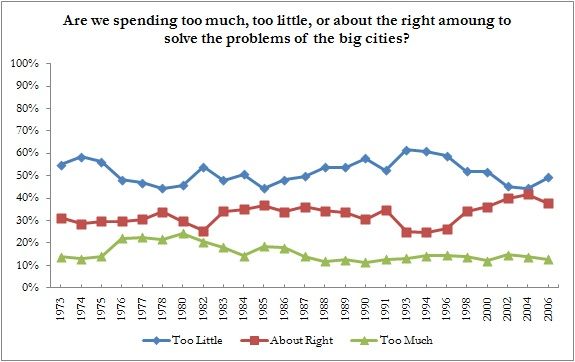
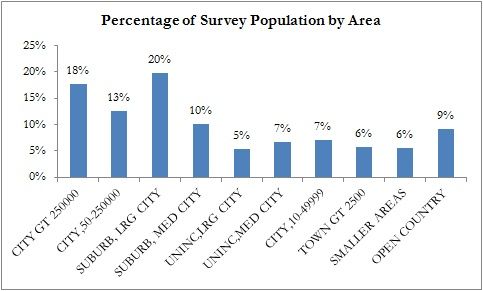
While the percentages of big-city and big-city suburban respondents who believe we are spending too little on big cities have increased (and are reassuringly large), the percentage of small-city suburban respondents who believe the same has decreased since 2000. [I should note that these tables should be read with a grain of salt as I have not tested any of the relationships for statistical significance. They are meant to be illustrative.]
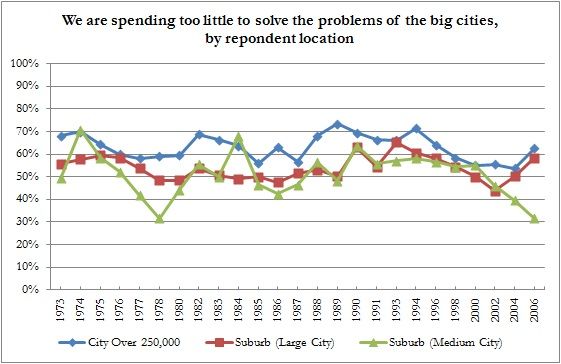
The differences in responses by party are, as expected, quite striking. Republican respondents are much less likely to say we are spending too little on big cities than Democrats. The difference between the parties was greatest in 1984, but was quite large in 2006, the latest survey year.
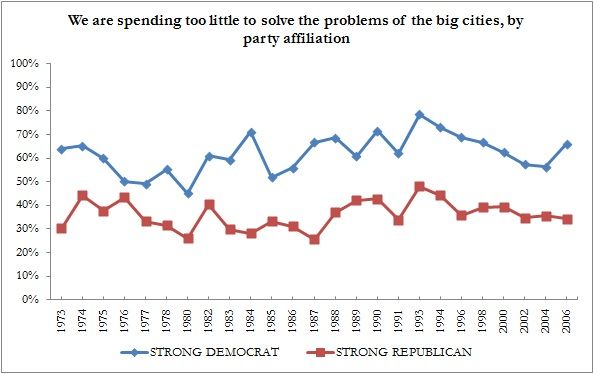
The survey evidence, albeit gleaned from a single question last asked in 2006, provides some support for Baker’s argument: In big cities and their suburbs, people seem to want more action on city issues, though fewer and fewer respondents in the suburbs of small cities want more action.
And what if Baker is right? If Republicans went after cities, he writes:
They would have to vie for votes in a manner that reflects urban realities instead of fantastical theories. Imagine a serious, practical discussion of educational reform or mass transit, instead of more heavy-handed attempts to demonize teachers’ unions or privatize the rails.
But Republicans already do articulate ideas about education reform, mass transit and innumerable other urban issues. While these may or may not be based on “fantastical theories,” they already compose an urban agenda that advocates less direct federal involvement in cities, that mostly opposes aid for state and local governments, that favors highways over mass transit and that leans heavily on charter schools as educational innovators.
You may think this urban agenda is good or bad, but there is no evidence that a Republican contest for the cities would involve abandoning these principles of federal urban governance long-held by Republicans.

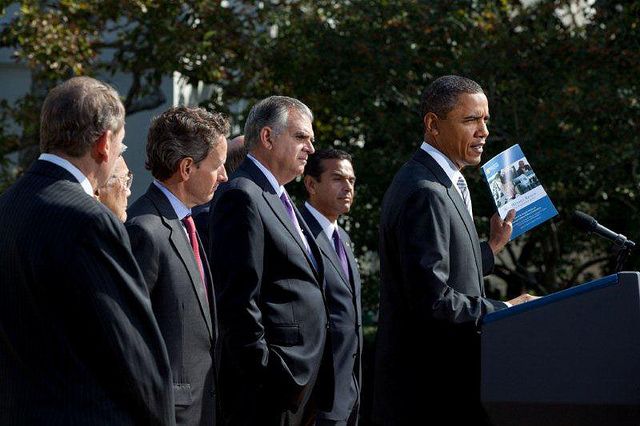
_600_350_80_s_c1.jpg)





